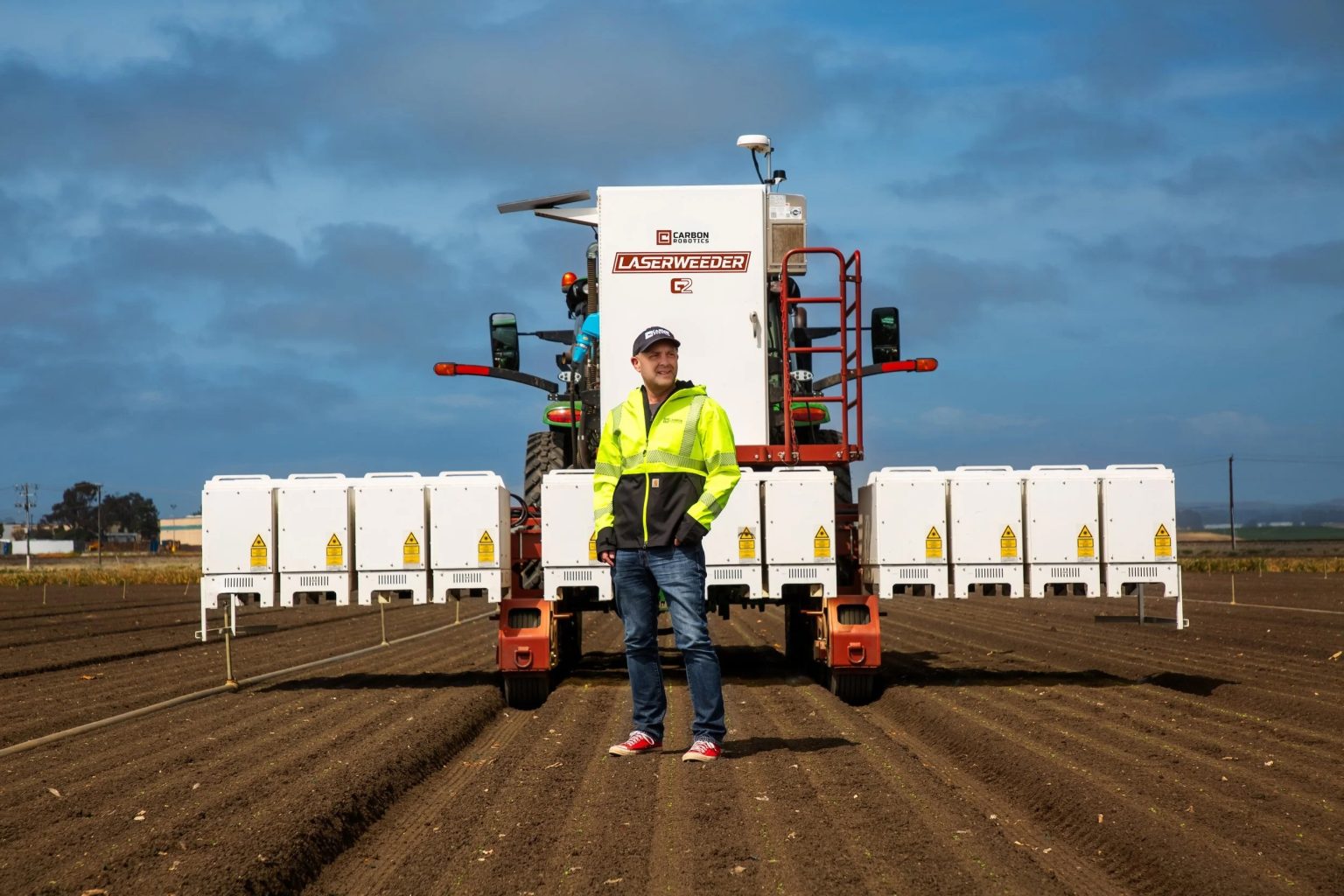Carbon Robotics Secures $20 Million for New AI-Powered Farm Machine
Seattle-based agriculture technology pioneer Carbon Robotics has secured $20 million in new funding to develop what CEO Paul Mikesell mysteriously describes as “a brand new AI robot” that will extend beyond the company’s current weed-eliminating focus. The startup, which has already revolutionized farming with its LaserWeeder and Autonomous Tractor Kit (ATK), plans to unveil this mind-blowing new machine in approximately nine months, building upon their established AI and computer vision platform that’s currently serving hundreds of farmers worldwide.
“It’s very flexible, capable of doing a lot with the world around it, understanding what it’s seeing, what’s happening,” explained Mikesell, hinting at the versatility of their AI system that powers both current and future products. The funding round was led by UK-based Giant Ventures, which invests in purpose-driven startups and “got what we were trying to do,” according to Mikesell. This Series D-2 extension brings Carbon Robotics’ total funding to an impressive $177 million, supporting their team of approximately 260 employees and manufacturing facilities in both Richland, Washington and the Netherlands—the latter strategically established to overcome trade barriers and accelerate European deployment.
Carbon Robotics made its name with the groundbreaking LaserWeeder, a tractor-pulled implement that uses advanced AI and computer vision to identify weeds among crops and precisely eliminate them with targeted laser beams. The company released its second-generation LaserWeeder G2 in February, followed by the March unveiling of the Carbon ATK (previously called AutoTractor)—an autonomous platform designed to retrofit existing farm equipment, addressing agricultural labor shortages while boosting productivity. These innovations have propelled Carbon Robotics to ninth place on the GeekWire 200 list of top Pacific Northwest startups, with previous backing from technology giant NVIDIA and Seattle’s Voyager Capital.
The company is also revealing more details about the “large plant model” at the heart of its AI systems, which represents a significant technological advancement. Mikesell explained that years of accumulated training data and labeled images now allow their AI to understand fundamental plant structures across different species and environments. “If new weeds pop up in an onion field in France, and those are eventually going to show up in a carrot field in the U.S., the first time we see that weed anywhere it can be part of the model and be ready to go,” Mikesell said. This universal approach enables Carbon’s machines to instantly adapt to new crops without requiring additional training, while allowing the LaserWeeder to precisely target the meristem (growing point) of weeds for efficient elimination.
While Carbon Robotics continues to expand its international presence—with LaserWeeders now operating across the United States and in 14 countries worldwide—Mikesell acknowledges that the company isn’t yet profitable despite growing revenue year over year. The combination of manufacturing expansion, ongoing research and development, and the forthcoming new robotic platform represents significant investment, but positions the company to maintain its technological edge. Regarding competition, Mikesell expressed confidence in Carbon’s unique capabilities, noting that while some European companies claim to be developing similar laser weeding systems, he hasn’t seen any operational machines in the field.
“It’s very hard to create a LaserWeeder,” Mikesell emphasized, highlighting the sophisticated targeting system that keeps lasers precisely aimed while the machine moves across uneven terrain. “The trick to making it work is you need a targeting camera to be able to keep the lasers on target, and everybody I’ve seen that says they’re gonna build a LaserWeeder doesn’t understand that concept.” This technological moat, combined with their expanding AI platform and mysterious new robotic development, suggests Carbon Robotics is poised to strengthen its position at the intersection of artificial intelligence and sustainable agriculture—potentially transforming additional aspects of farming beyond weed control as they prepare to reveal their next innovation in 2026. For an industry facing increasing pressure to reduce chemical usage while maintaining productivity, Carbon’s laser-focused approach to agricultural challenges continues to burn bright.















